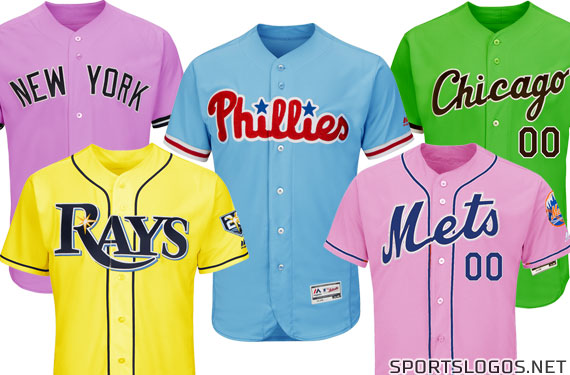
Baseball 2018: But Some of Us Still Remember When….
“Remember When” was first published in The American Spectator, 18 April 2018.
On the first day of April, a spoof flashed around social media. In honor of Easter, all thirty Major League Baseball teams would be wearing jerseys in Easter egg pastel colors. April Fool! The day dawned, and the teams all wore their normal uniforms. The culprit, Chris Creamer of SportsLogos.net, said it was all in fun.
Chris’s joke gained credence thanks to MLB’s habit of commemorating everything from pet dogs to “our troops.” (“Pups in the Park,” who’s gonna clean up that mess? And forgive my cynicism, but when I wore the uniform we were frequently referred to as baby killers.)
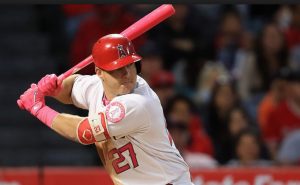
Of course the thing honored must be Politically Correct. For years now, players have gone to bat wielding pink bats and pink batting gloves on Mother’s Day. Someone immediately told me Easter uniforms must be a spoof because it’s not PC to celebrate a religious holiday.
Yeah but, a Jewish friend wrote, “Passover was the same weekend as Easter this year. So it could easily be accommodated by having the players also wear yarmulkahs.” But let’s not get into comparative religions.
Remember?
Baseball is an elegant game, the only team sport not played against a clock. It is full of traditions. But it’s changed. Take the broadcasters (please). When I was a kid they called pitches, balls, strikes and plays, and made prescient observations about players—nothing else. The last great practitioner, Vin Scully, retired in 2017. Vin did his homework. What other announcer would know to tell us that Wilson Ramos made spare cash as a boy by buying a pony and selling rides?
In Vin’s heyday there were no reminiscences of an announcer’s playing days, no ballgirl interviews with players, no celebrities cluttering up the broadcast booth during the game, no goofy mascots, no songfests, no fireworks, no instant-replay, no reviews (umpires were uniformly competent and utterly impartial). Just baseball—pure and stately, as Abner Doubleday intended. (Yes, I know, Abner probably didn’t invent it, but he should have.)
Just for fun I thought it would be amusing to record the vanished features of baseball as it was in, oh, say, the Summer of 1960. (One of my bittersweet years: the last before my original Washington Senators ratted for Minneapolis.) I divide these between The Good (things we should have back) and The Bad (things that probably won’t be missed). The more of these you remember, the closer I can pinpoint your age.
The Good
1. Remember Sunday double-headers, with one ticket for both games? (True, that the cost of salaries and everything else now precludes two-games-for-the-price of one. So how about a ticket to the same seat for two Sunday games, an hour or so apart, with a slight discount over the standard two-game price?) Among the improvements would be a shorter season. Today’s expanded playoffs have us playing in freezing March and darkest November. God never intended that for the game of baseball.
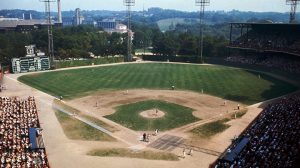
2. The home team “took the field” and both sides stood for the National Anthem, which was part of every broadcast. The National Anthem is still played. (Disrespecting it hasn’t spread here from football.) But you never hear it before a broadcast. And you should. Some of us still remember that.
3. There was no such thing as a “designated hitter.” The American League adopted this ill-conceived rule in which the pitcher never hits. He is replaced in the lineup by an exhausted rooster who can still bang the ball but not play the field. The object was to produce more hitting in an era of dominant pitching. The catastrophic results included the demise of strategy (like the key decision of when to pinch hit for your pitcher), and the decline of the sacrifice bunt, which every pitcher was once expected to execute. Conversely, many players simply don’t know how to hit to the opposite field. This results in the ridiculous “shifts” we see so often. Another thing God never intended was all the infielders playing on one side of the mound.
* * *
4. Bunting is still done, mostly in the National League, but it’s a vanishing art. The essence of the classic bunt is surprise. Time was when you’d never square around before the pitch, holding the bat in your hands. This just allows the corner basemen to come charging in to cut off your sacrifice. Watching today’s unskilled labor stand there holding their bats long before the pitch makes my hair hurt.
5. Pitching mound courtesy: When relieved, the departing pitcher would wait for his reliever, hand him the ball, and pat him on the back before he left—a little gesture of encouragement that has seemingly vanished. Today, be a pitcher’s performance great or awful, he slinks off the mound a few seconds after the manager arrives to take him out.
6. Everyone would remember that a no-hitter was NOT mentioned until it was complete. Today, with the exception of a few traditionalists, they start blabbing “X has a no-hitter going” as early as the fifth inning. The words even pop up on computerized box scores. Please note: this doesn’t go on in the dugout. Teammates give the no-hit pitcher a wide berth, and nobody, but nobody, says the fatal words to him. Of course no one believes that saying “no-hitter” before the last pitch is really a jinx. It’s just a nice thing to do. Voicing those words is the act of an ingrate.
* * *
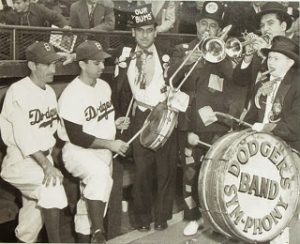
7. There were no names on uniforms. (The Yankees, Giants and Red Sox maintain this tradition, at least on home uniforms.) Pasting names on uniforms might have been useful before the digital age. But now TV, smartphones and computer monitors identify every player constantly, as do digital play-by-play programs. If you’re at the yard, the guy’s name and mug are plastered on a big scoreboard. If all else fails, break down and buy a program!
8. Ballpark PA systems didn’t add to the cacophony with recorded cheerleading. There was no “Everybody Clap Your Hands.” It was enough once to have an organ blasting feel-good muzak. Or there were certain features identified with individual teams, like Brooklyn’s famously out-of-key “Dodger Sim-PHONY.” By the way: individual “walk-up music” for each player is one of the dumbest modern accretions I’ve seen. Especially when the guy proceeds to strike out on three straight pitches. If a player deserves music, let it come after a great at-bat, fielding play or pitching performance.

The Bad
1. “Pitch counts” were unheard of. The manager would decide how an individual pitcher was doing based on his current performance. Different pitchers had different endurance. Pitchers tended to be left in much longer than they are today. While all this was a tribute to individuality, medical knowledge has advanced. The known strains of modern pitching, with 100 mph fastballs and high-speed breaking balls, has made pitch count a statistic worth considering.
2. There was no inter-league play. The National League played National League teams, the American League played American League teams, and the best of each met in October (not November). This used to be in my “good” column, but friends convince me it’s well we have inter-league games today. You get to see rivals, like the Yankees vs. Mets or Nationals vs. Orioles. Also, when the NL team is the host, American League teams get to play real baseball, where the pitcher has to bat like everybody else.
* * *
3. Batters didn’t wear gloves. A baseball writer I know says: “I remain puzzled by how Cobb, Speaker, Jackson, Hornsby, Ruth, Gehrig, Goslin, DiMaggio, Williams, Musial, Robinson, Mantle, Mays, et al. could hit the way they did without batting gloves. Must have been a profound handicap.” I think he’s being facetious. Golfers and cyclists have always worn gloves, they must do some good for baseball players too. (But I would forcefully ban stepping out of the box to re-wrap your Velcro glove fasteners between pitches, shortening the average game by a good ten minutes.)
4. On the first Yankee broadcasts I remember, Mel Allen would sometimes say, “Well, folks, bottom of the 9th and the Yanks are bringing in their gloves.” That was when outfielders often left their gloves on the grass of the outfield, sometimes even in fair territory. So when the home team was determined to win a tie game in the bottom of the 9th, they would “bring in their gloves” as a kind of declaration. This quaint practice ended when a couple of players tripped over opposition gloves left out in the field.
“Progress was all right once, but it’s gone on too long”
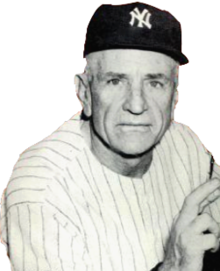
…said Ogden Nash. Baseball is an American institution (with avid boosters in places like Japan and the Caribbean), in part because of its gentlemanly traditions. There are many more than I’ve listed here. (Watching Game 7 of the 1960 Pirates-Yankees World Series, I noticed that pitchers worked fast, batters didn’t step out between pitches, and the whole game lasted two hours and 36 minutes. Everybody wore stirrup socks, and Casey Stengel‘s ears were the size of Texas.
We can never duplicate Casey’s ears, but we could profitably restore stirrup socks and knickerbockers instead of those baggy-legged trousers that flop around at shoe level on the less sartorial players. Damn right I’m a grumpy old man.







4 thoughts on “Baseball 2018: But Some of Us Still Remember When….”
Alanna is sharp. ESPN’s announcers are unlistenable. I do the same thing, turn off the audio and listen to Charlie Slowes broadcasting the Nats games. I mean the Washington Senators. Problem is, ESPN often blacks out the MLB At Bat broadcasts, and I don’t subscribe to ESPN.
Great baseball memories. I would like to say “ball girls” like Alanna Rizzo of the Dodgers are really knowledgeable about baseball, the players and the rules. She also speaks fluent Spanish. She is better than many ESPN announcers who seem to know nothing and who seem, unlike Scully, never to read or prepare for a game. Most are very poor, D+ at best. Whenever possible I listen to the radio and turn them off. Via MLB at bat I usually have two or three choices, Almost always 100% better than ESPN clowns.
He wasn’t a follower of team sports, though he loved playing one (polo). But he did have a few stray quips about baseball, which I will post herein shortly. In the meantime, for amusement, I offer Question Time, House of Commons, 21 July 1952…
Mr. Fenner Brockway (Lab.) asked: “Is [the Prime Minister] aware that…the Iver Heath Conservative Party Association held a fete to raise money for party purposes to which it invited American Service baseball teams to participate for a ‘Winston Churchill’ trophy…and had a note from him saying he was honoured that his name was linked to the trophy?”
WSC: “I read in the Daily Worker some account of this. I had not, I agree, fully realized the political implications that might attach to the matter, and in so far as I have erred I express my regret.” [Laughter.]
What? No quote from The Great Man? Churchill must have said something about the great American pastime.
Comments are closed.